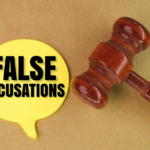Can I Become A Lawyer With A Criminal Record?

In many ways the legal system depends on the honesty and ethics of legal practitioners, so it makes sense that there are restrictions on the people who can apply.
To be admitted as a lawyer, you must be a person of good fame and character.
But does that mean every candidate must have a squeaky clean record?
Being in trouble with the law does not mean that you are immediately disqualified, although you will have to disclose any criminal record.
Section 9 of the Legal Practitioner Act NSW states that anyone wanting to become a practising lawyer must disclose if they have ever been convicted of an offence in Australia or any other country, along with information regarding:
- The nature of the offence
- How long ago the offence was committed, and
- The person’s age when the offence was committed
This also includes any finding of guilt by a court which did not result in a criminal conviction – for example, if you got a section 10 dismissal or conditional release order.
And it also includes any finding of guilt by a tribunal, including a university tribunal.
All adverse disciplinary findings must also be disclosed.
Once they are disclosed, the Board will make a decision on your suitability.
If you disagree with the finding, you may appeal and have your case heard by a tribunal or court.
There have been many instances where candidates have been admitted to practice despite having criminal records, especially where their conduct did not amount to dishonesty.
In one case, the Victorian Supreme Court found a female applicant to be an acceptable candidate despite having several criminal convictions.
She had been sexually abused by her brother, and while suffering from depression and drinking heavily to cope with her trauma, made abusive phone calls to police, including one where she threatened to kill a female officer.
She had criminal convictions for damaging property, resisting arrest traffic offences and using a telecommunications service to menace, harass or offend.
She was placed in a psychiatric hospital but upon her release, continued to offend.
During that time, she had extraordinarily managed to complete her law degree.
She gave up drinking and joined Alcoholics Anonymous, and in the lead-up to her application for admission, had only committed a few traffic infringements.
The Board initially refused her application for admission, but that decision was overturned on appeal when the court found that the offences arose from her poor mental condition, which had now improved.
The court also took into account her acceptance of responsibility and remorse..
Disclosure requirements
As stated, the requirement for disclosure doesn’t just extend to court decisions – it also includes adverse finding by tribunals including university tribunals.
This means that applicants who have engaged in plagiarism or other any kind of academic misconduct may be deemed unfit to practice.
And even charges where you were acquitted will need to be disclosed.
In one case, a man – Del Castillo – was tried and then acquitted for murder. He did not disclose this, but when the truth came out, the court decided that this was something that should have been disclosed.
But not every single wrongdoing must be disclosed: for example, minor traffic infringements and parking tickets will not be relevant.
So having a criminal record is not necessarily a bar to becoming a lawyer, and it is always prudent to disclose all relevant convictions, findings of guilt and adverse decisions when making your application for admission. It is also a good idea to include a ‘show cause’ letter outlining the context of your indiscretion and what you have done to make up for it since.






